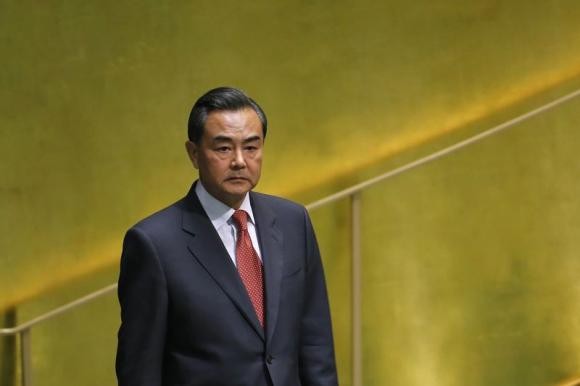While political analysts and vocal contributors to prominent publications have started the week with a large question mark over Beijing and its intentions for the future, a Monday session at the U.N. Security Council clarified any doubt that might have hung in the air.
The debate, titled "Maintaining International Peace and Security: Reflect on History, Reaffirm the Strong Commitment to the Purposes and the Principles of the Charter of the United Nations," was actually initiated by China and China's foreign minister, Wang Li, presided over the proceedings.
China's pro-United Nations standpoint should not come as a surprise to the world's observers, as Wang appeared before the U.N. General Assembly in September of last year to denounce the terrorist activities of militant Islamist group, Islamic State. On that occasion, the minister's focus was the group's use of online tools--which he called the "block channels of spreading terrorism and extremism"--for the purpose of "religious extremism and cyber terrorism."
In contrast to other streams of prevailing thought, Wang spoke before the Council of cooperation, justice, equality, democracy, the rule of law and sovereignty. According to the foreign minister's statements on Monday, his international perspective is representative of a 21st-century attitude that leaves behind outdated modes of thinking:
"The old mindset of confrontation should be discarded, and consultation and cooperation among the parties should be encouraged if we are to address the major issues affecting world and regional peace and development."
While refugees continue to flood over the border from Myanmar due to the hostilities that erupted in the neighboring nation on Feb. 9, Wang's expression of unity and independence in New York City should be seen as the underlying reason for why Beijing has chosen to remain separate from the domestic Burmese situation.
Although he called for "a win-win, not zero-sum approach," such a modus operandi does not preclude the importance of strategy.



























